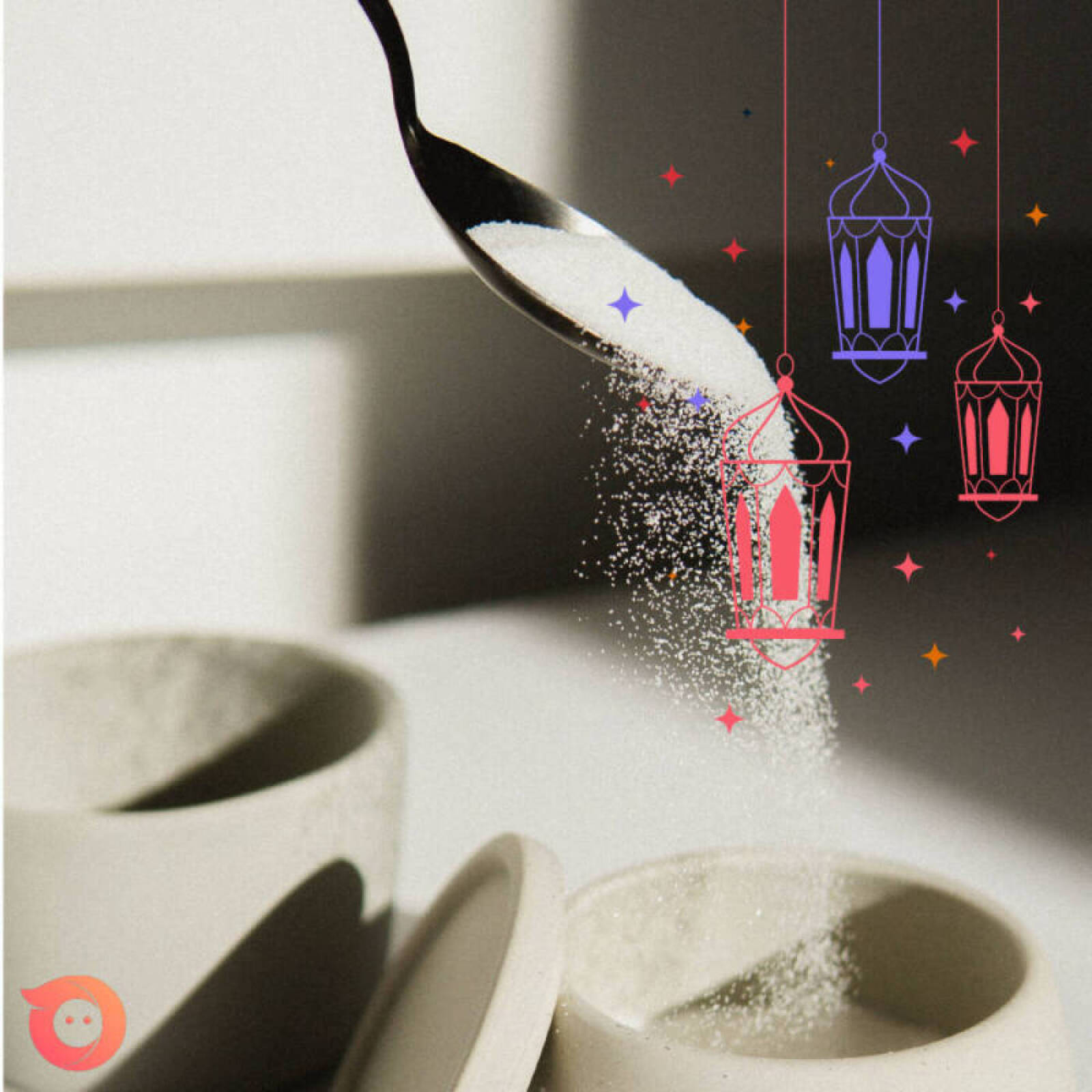“Consuming high amounts of sugar during Ramadan can increase the risk of dehydration, as sugar can affect the body’s ability to retain water. Here are some of the ways that sugar can impact hydration during Ramadan:
Increased urination: Consuming high amounts of sugar can cause the body to produce more urine, which can lead to dehydration if fluids are not replaced.
Electrolyte imbalances: Consuming high amounts of sugar can disrupt the body’s balance of electrolytes, such as sodium and potassium, which are important for proper hydration.
Reduced water intake: Consuming high amounts of sugary drinks or sweets can displace water intake, leading to reduced fluid intake overall.
Increased thirst: Consuming high amounts of sugar can lead to increased thirst, which may prompt individuals to drink more sugary beverages rather than water.
To avoid dehydration during Ramadan, it is important to consume a balanced diet that includes plenty of water-rich fruits and vegetables, whole grains, and lean protein. It is also important to limit the consumption of sugary drinks and sweets, and to replace these with water or other hydrating beverages like coconut water or herbal tea. Additionally, it is important to avoid consuming high amounts of sugar right before or during periods of fasting, as this can increase the risk of dehydration.






